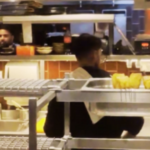Agency work has emerged as an enticing option for chefs seeking greater flexibility and autonomy in their culinary careers. One reason for this shift towards freelance opportunities is the desire for a more diverse and dynamic work environment. Agency chefs have the opportunity to work across a variety of settings, from restaurants and hotels to private events and corporate functions. This diversity not only keeps the work engaging and stimulating but also allows chefs to expand their skill sets by adapting to different cuisines, kitchen setups, and client preferences.
Moreover, agency work offers chefs the freedom to create their schedules and take control of their professional lives. Unlike traditional full-time positions, freelance chefs have the flexibility to choose when and where they work, enabling them to strike a better balance between their personal and professional commitments. This flexibility is particularly appealing for chefs who value work-life balance or have other interests and responsibilities outside of their culinary careers.
Additionally, agency work can be financially rewarding for chefs, especially those with specialized skills or expertise. Freelance chefs often have the opportunity to negotiate higher rates for their services, particularly for high-demand events or specialized cuisines. This potential for increased earnings, coupled with the freedom to pursue diverse culinary opportunities, makes agency work an attractive option for chefs looking to take their careers into their own hands.
What are the benefits of being an agency chef?
Becoming an agency chef presents numerous benefits that appeal to culinary professionals seeking flexibility, diversity, and autonomy in their careers. Firstly, agency chefs enjoy the freedom to create their schedules and choose the assignments that best suit their preferences and availability. This flexibility allows them to strike a better balance between their personal and professional lives, accommodating varying commitments and interests outside of work.
Secondly, agency work offers chefs the opportunity to gain diverse culinary experiences by working across a range of settings, including restaurants, hotels, private events, and corporate functions. This exposure to different cuisines, kitchen setups, and client preferences not only keeps the work engaging and stimulating but also allows chefs to continually expand their skill sets and culinary repertoire.
Moreover, agency chefs often have the potential to earn higher rates for their services, especially for specialized skills or high-demand events. Negotiating competitive rates and taking on lucrative assignments can lead to increased earnings and financial stability. Additionally, agency work provides chefs with networking opportunities and exposure within the culinary industry, allowing them to build relationships with clients, colleagues, and potential employers. Overall, the benefits of being an agency chef include flexibility, diversity, autonomy, and the potential for increased earnings, making it an attractive option for culinary professionals seeking a more dynamic and fulfilling career path.
Why are more chefs choosing freelance lifestyle?
In recent years, there has been a noticeable trend of more chefs opting for a freelance lifestyle, eschewing traditional full-time employment for the freedom and flexibility that comes with working independently. One primary reason for this shift is the desire for greater autonomy and control over one’s career. Freelance chefs have the freedom to set their schedules, choose their clients and projects, and define the direction of their culinary endeavors. This level of independence allows chefs to pursue their passions, experiment with different cuisines, and explore diverse culinary opportunities.
Another driving factor behind the popularity of the freelance lifestyle among chefs is the desire for work-life balance. Traditional kitchen roles often involve long hours, high-pressure environments, and limited time off, leading to burnout and fatigue. By working as freelancers, chefs can create a more sustainable work-life balance, allocating time for personal pursuits, family, and leisure activities while still pursuing their culinary ambitions.
Additionally, the freelance lifestyle offers chefs the potential for increased earning potential and financial stability. Freelancers have the opportunity to negotiate their rates, take on multiple projects simultaneously, and diversify their income streams through various culinary ventures. This flexibility in setting rates and pursuing lucrative opportunities can lead to higher earnings and a more financially rewarding career path for chefs seeking greater control over their financial futures. Overall, the freelance lifestyle appeals to chefs as it offers autonomy, work-life balance, and the potential for increased earning potential, making it an attractive option in today’s culinary landscape.
Is agency work reliable and regular?
The reliability and regularity of agency work for chefs can vary depending on several factors, including demand, seasonality, and individual preferences. While agency work offers flexibility and diverse opportunities, it may not always guarantee a consistent flow of assignments. In some cases, agency chefs may experience fluctuations in workload, with busy periods followed by quieter times. This variability can make it challenging for chefs to predict their income and plan their schedules in advance.
However, for chefs willing to be proactive and flexible, agency work can provide a reliable source of income. By building strong relationships with agencies, establishing a reputation for reliability and professionalism, and being open to a wide range of assignments, chefs can increase their chances of securing regular work. Additionally, networking within the culinary community and cultivating relationships with clients can lead to repeat business and ongoing opportunities for agency chefs.
Furthermore, the reliability of agency work can also depend on the location and market demand. In bustling culinary hubs like London, where there is a constant demand for skilled chefs in various settings, agency work may be more consistent and reliable. Conversely, in smaller or less competitive markets, chefs may encounter fewer opportunities and greater variability in workload. Overall, while agency work offers flexibility and diverse opportunities, its reliability and regularity can vary depending on factors such as demand, seasonality, and individual efforts to secure assignments.
Is black or white chefs jacket preferable for agency work?
When it comes to choosing between black or white chef jackets for agency work, there isn’t a strict rule, and preferences may vary depending on factors such as personal style, the type of establishment, and industry trends. Traditionally, white chef jackets have been the standard in professional kitchens due to their classic and clean appearance. White jackets are often associated with cleanliness and professionalism, making them a popular choice in fine dining restaurants and upscale catering events. Additionally, white jackets are known for their ability to reflect heat, which can be beneficial in hot kitchen environments.
However, black chef jackets have gained popularity in recent years for their modern and stylish aesthetic. Black jackets can add a contemporary touch to a chef’s attire and are often favored by chefs working in trendy restaurants or modern culinary settings. Moreover, black jackets are less prone to showing stains and spills, which can be advantageous in fast-paced kitchen environments where cleanliness is crucial. Additionally, black jackets may offer a sleek and polished look that appeals to both chefs and clients.
Ultimately, the choice between black or white chef jackets for agency work boils down to personal preference and the specific requirements of the job. Some chefs may prefer the traditional look and professionalism associated with white jackets, while others may opt for the modern and practical appeal of black jackets. Regardless of color choice, the most important factor is that the jacket is comfortable, functional, and meets the standards of cleanliness and professionalism expected in the culinary industry.




